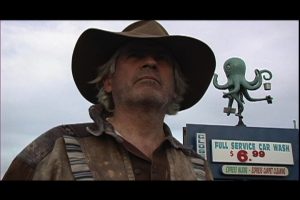New Mexico Indie Film, Unplugged: 'Lost in New Mexico'

In 2004, a groundbreaking independent film called 'Lost in New Mexico: The Strange Tale of Susan Hero' was shot in and around Albuquerque, New Mexico. Written and directed by filmmaker Jason Rosette, this movie stands out for its innovative approach and unique themes. What sets it apart from other films is not only its primarily People of Color (POC) cast and crew but also the fact that it was one of the first indie films shooting in New Mexico to receive a rebate from the New Mexico Film Office's film incentives program.
This rebate program, introduced by the New Mexico Film Office, aims to attract filmmakers to the state by offering financial incentives, such as rebates on eligible production expenses. 'Lost in New Mexico' is a prime example of how this program has helped support and encourage independent filmmakers, allowing them to bring their creative vision to life.

An Improvisational Style Reminiscent of Nicolas Roeg
One of the defining characteristics of 'Lost in New Mexico' is its improvisational style, which draws inspiration from the acclaimed filmmaker Nicolas Roeg. This approach adds an element of spontaneity and authenticity to the film, making it a truly unique viewing experience.
By encouraging the cast and crew to think on their feet and embrace the unexpected, director Jason Rosette was able to capture raw emotions and explore complex themes with great depth. This improvisational style, combined with the talented local participants from New Mexico, elevates 'Lost in New Mexico' to a whole new level.

The Unconventional Themes Explored
While many films tend to stick to safe and familiar themes, 'Lost in New Mexico' fearlessly delves into two unconventional subjects: illegal immigration and human cloning. The film uses these themes as a catalyst to provoke thought and discussion about the ethical implications they pose.
'Lost in New Mexico' explores not only the controversial issues surrounding illegal immigration but also delves into the emotional impact these issues have on individuals. By weaving together the emotional and intellectual aspects of these complex topics, the film provides a unique perspective that challenges viewers to consider the deeper implications of such drastic measures.



Recent Comments